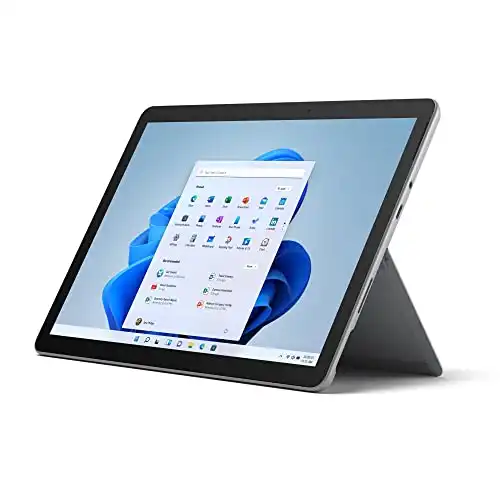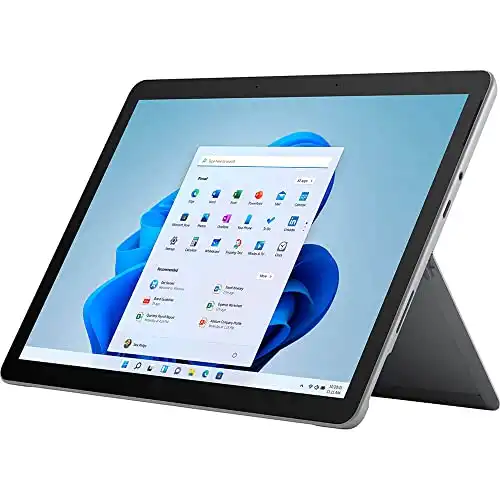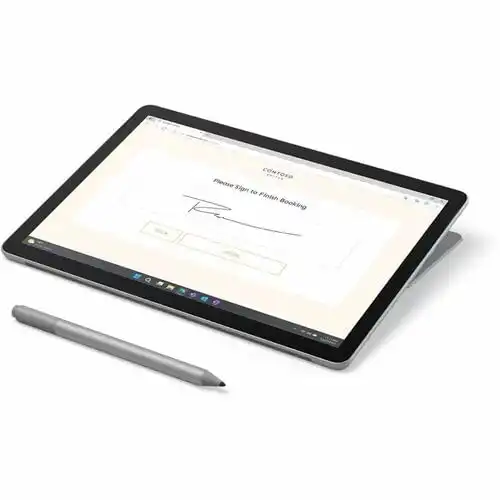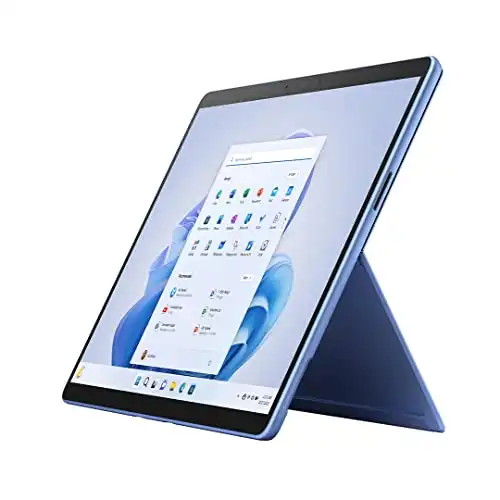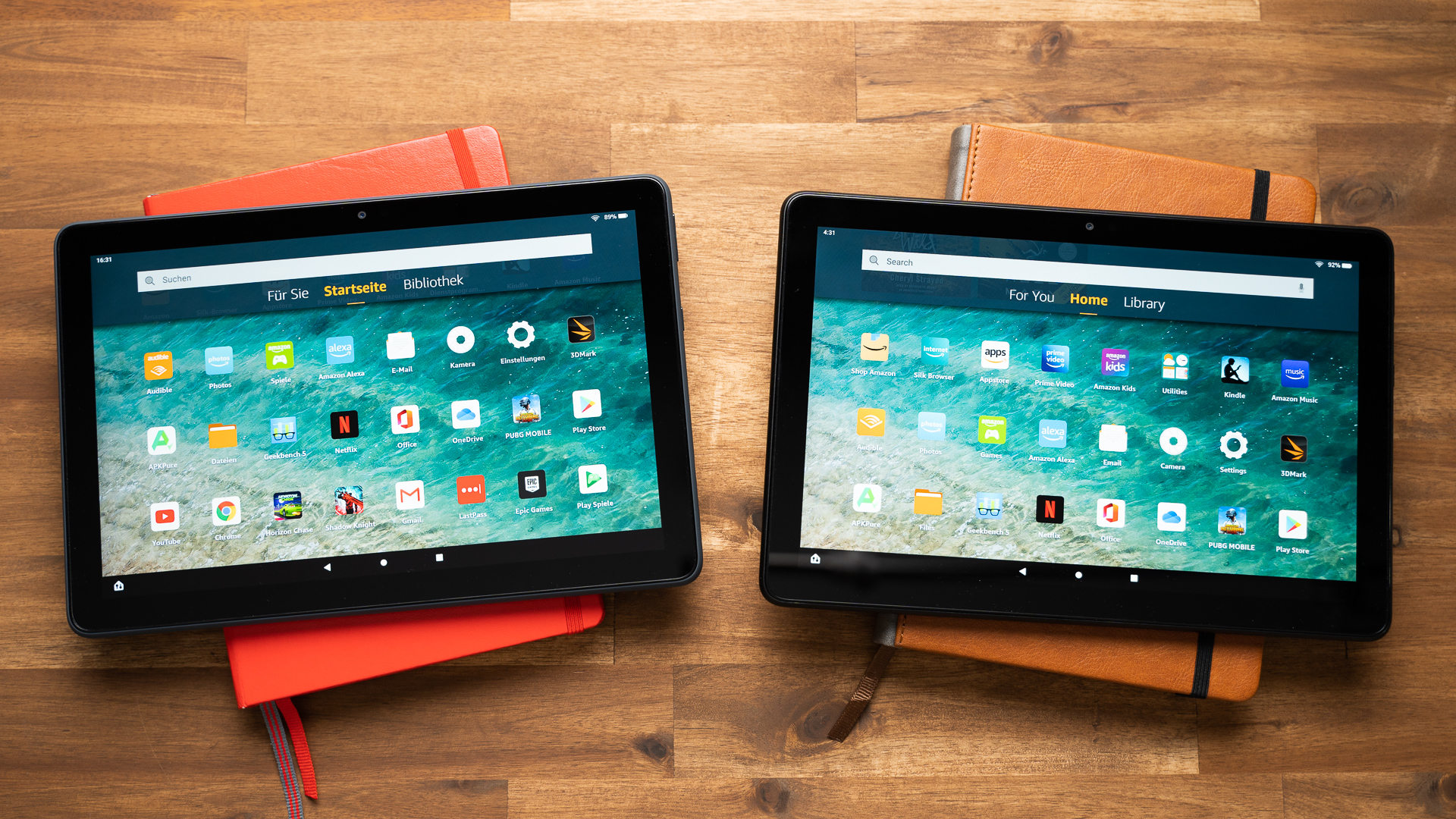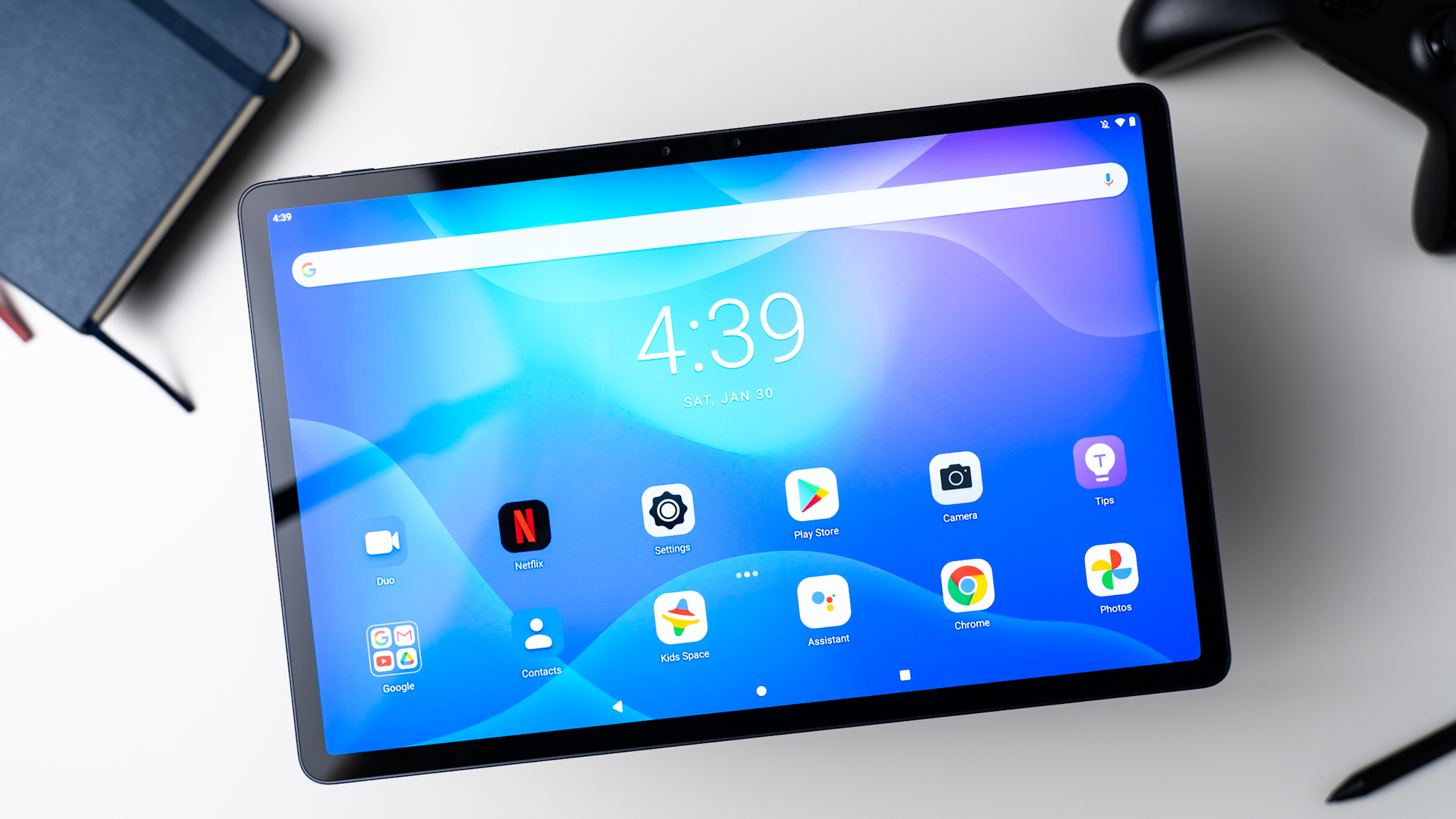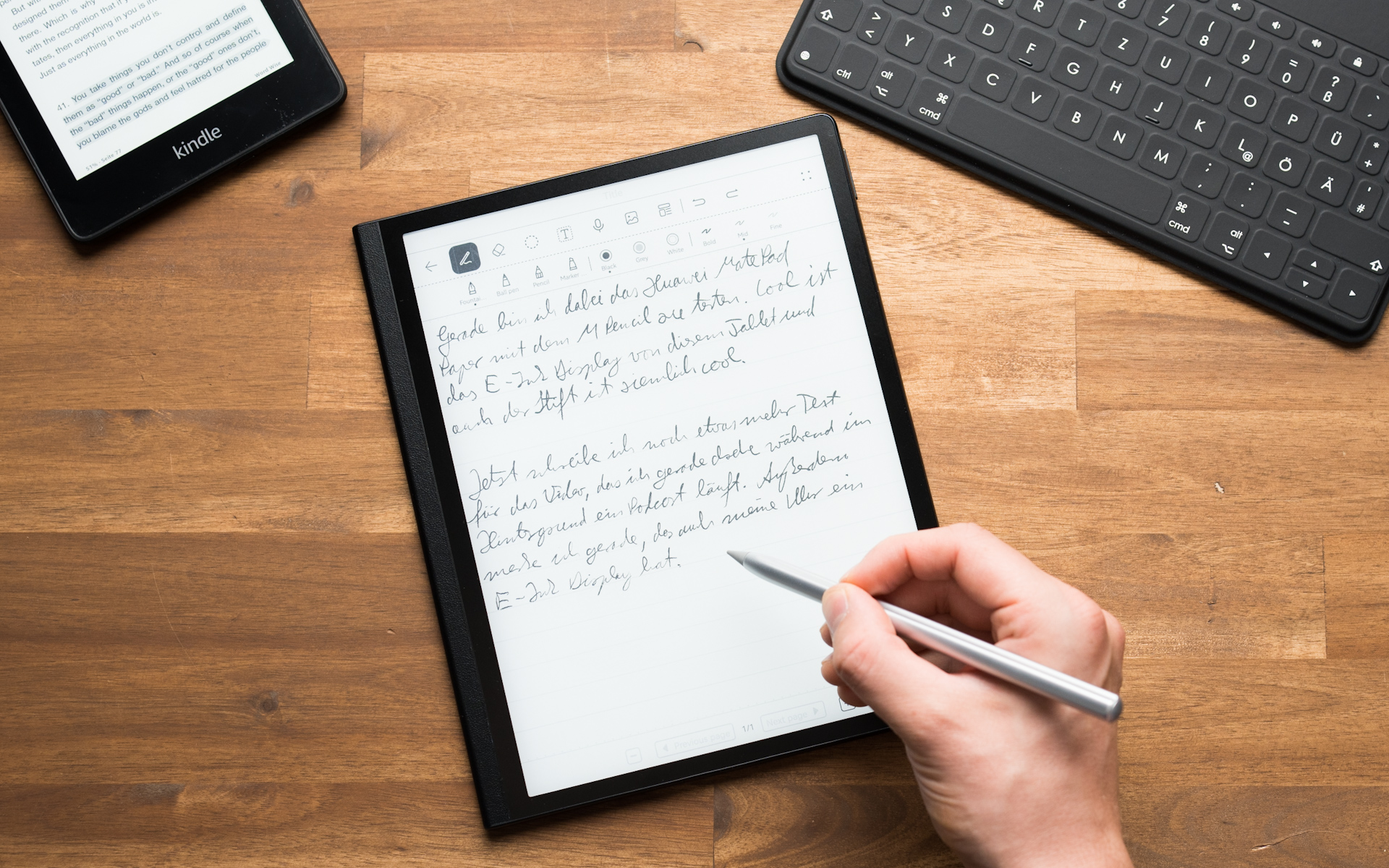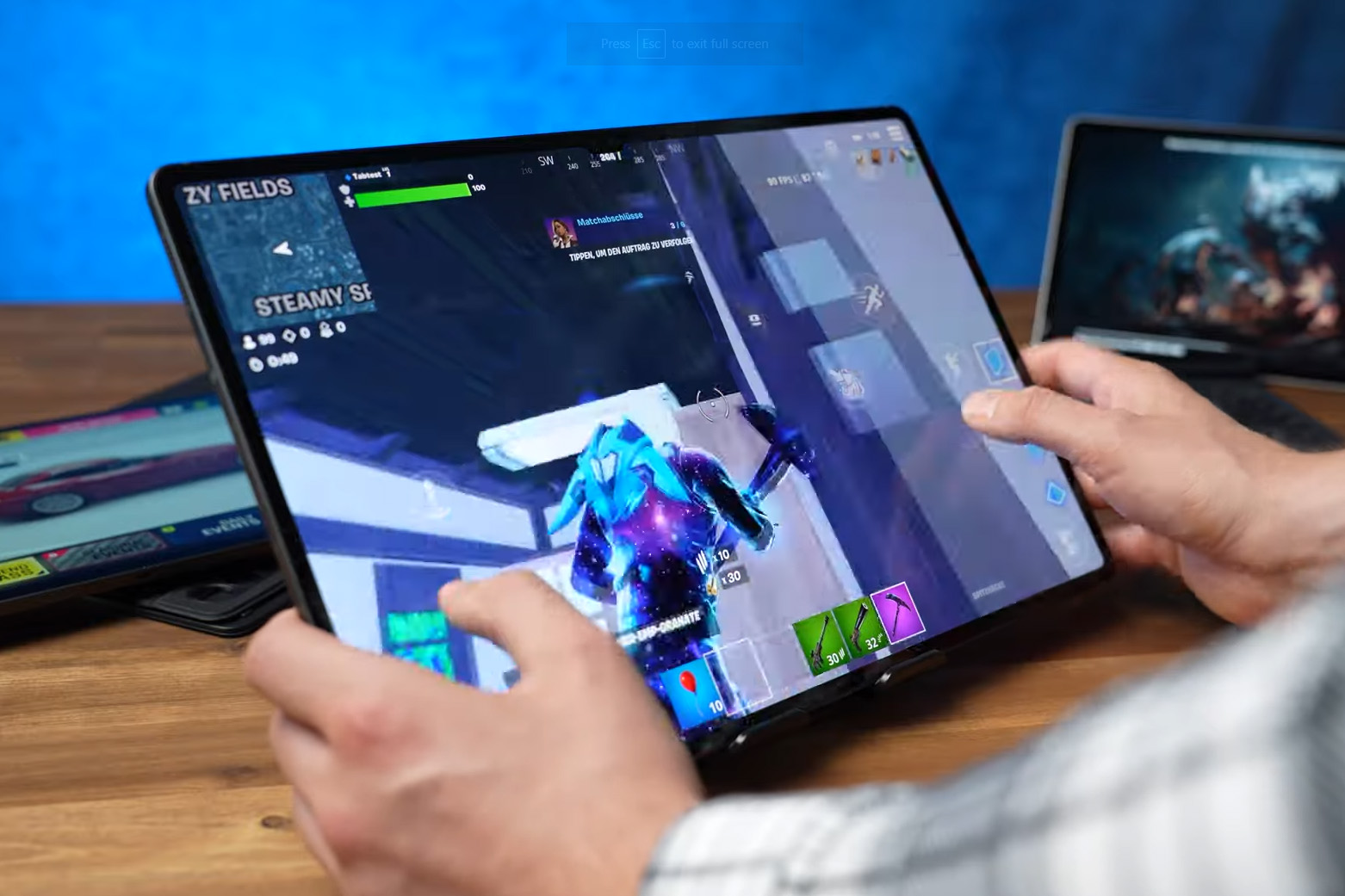Comparisons
Microsoft Surface Comparison: Don’t Buy The Wrong Laptop or Tablet
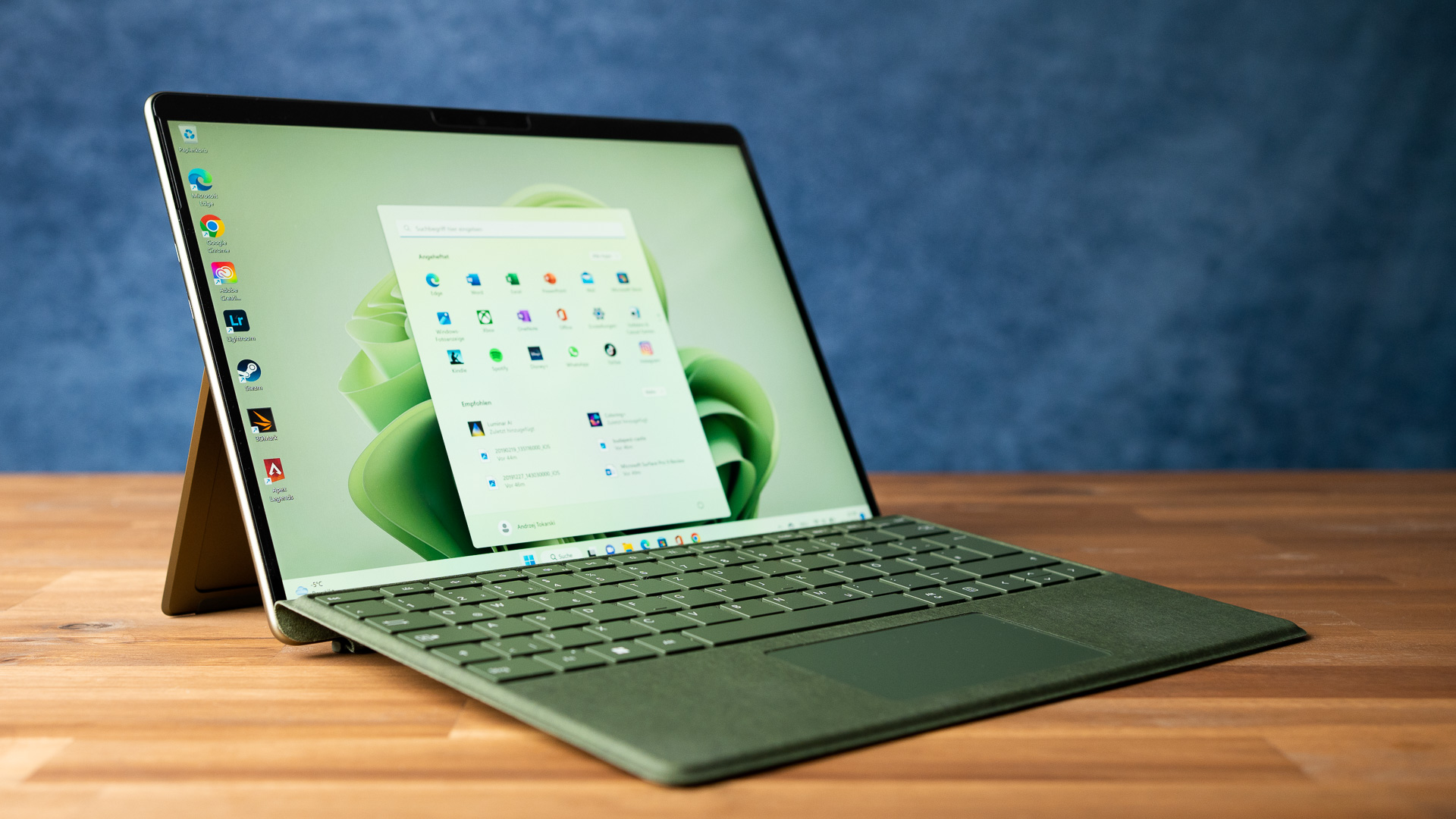
If you’re looking for a Microsoft Surface, you might have a problem understanding the differences between the different models.
Fret not, here’s the quickest summary ever:
Surface Laptop Series Summarized
The Surface Laptop series is very similar to a traditional laptop with an attached keyboard.
Surface Laptop Studio: Most powerful, most expensive, has flexible screen configurations.
Surface Laptop Go: Laptop with a focus on portability. Smallest display among the Laptop series at 12”.
Surface Laptop: A laptop with a focus on long battery life and sleekness. Decent performance for everyday use.
Surface Go, Pro Series Summarized
The Surface Go and Pro series are tablets, but they are usually paired with a detachable keyboard, which allows them to function like a laptop. No Surface Go or Pro has an integrated graphics card.
Surface Go: Prioritizes compactness at the cost of performance. It comes with a 10-inch screen, but generally has less RAM, less memory and a weaker processor than its Surface peers.
Surface Pro (except Pro X and Pro 9 with SQ 3 processor): Powerful Surface tablet with good everyday capabilities.
Surface Pro X and Pro 9 with SQ 3 processor: Comes with the Microsoft SQ-series processor, which is based on the ARM architecture. Not recommended for people seeking a traditional Windows experience because of compatibility issues — scroll to the final section of this article for elaboration.
|
$299.03
|
$418.00
|
N/A
|
|
The Microsoft Surface Go 2 is a 10.5-inch Windows tablet with an optional keyboard cover and optional Surface Pen. It's a great and very portable 2-in-1 device that runs full Windows 11 and has lots of great features. However, it's a couple of years old now - the newest is the Surface Go 4. The Surface Go 2 can be a great buy, however, as long as you can find a great deal. |
The Microsoft Surface Go 3 is a 10.5-inch Windows tablet with an Intel Pentium Gold chipset, 4GB of RAM and at least 64GB of internal storage. You can get it with a good keyboard cover and a fantastic Surface Pen. While we reviewed the predecessors, we never tried the Go 3 ourselves. |
The Microsoft Surface Go 4 is an excellent choice if you're looking for a 10-inch Windows tablet. It offers a pretty display, a high-quality design, an excellent Surface Pen and a good keyboard. The performance is very good, especially for office work, but I can't recommend it as a gaming tablet or for graphic work. It's also a shame that it's quite expensive. |
|
|
The Microsoft Surface Go 2 is a 10.5-inch Windows tablet with an optional keyboard cover and optional Surface Pen. It's a great and very portable 2-in-1 device that runs full Windows 11 and has lots of great features. However, it's a couple of years old now - the newest is the Surface Go 4. The Surface Go 2 can be a great buy, however, as long as you can find a great deal.
The Microsoft Surface Go 3 is a 10.5-inch Windows tablet with an Intel Pentium Gold chipset, 4GB of RAM and at least 64GB of internal storage. You can get it with a good keyboard cover and a fantastic Surface Pen. While we reviewed the predecessors, we never tried the Go 3 ourselves.
The Microsoft Surface Go 4 is an excellent choice if you're looking for a 10-inch Windows tablet. It offers a pretty display, a high-quality design, an excellent Surface Pen and a good keyboard. The performance is very good, especially for office work, but I can't recommend it as a gaming tablet or for graphic work. It's also a shame that it's quite expensive.
Surface Pro
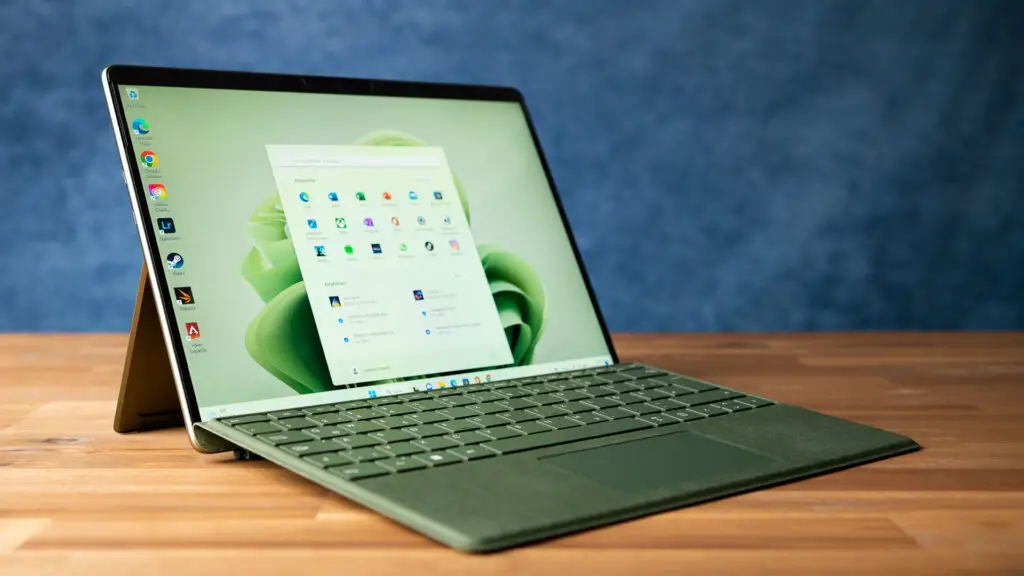
| Model | Surface Pro 9 |
| Dimensions | Surface Pro 9 (Intel/Wifi): Length: 11.3”(287 mm) Width: 8.2” (209 mm) Height: 0.37” (9.3 mm) Surface Pro 9 (SQ® 3/5G): Length: 11.3” (287 mm) Width: 8.2” (209 mm) Height: 0.37” (9.3 mm) |
| Display | Surface Pro 9 (Intel/Wifi): Screen: 13” PixelSense™ Flow Display Resolution: 2880 X 1920 (267 PPI) Color profile: sRGB and Vivid Refresh rate up to 120Hz (Dynamic refresh rate supported) Aspect ratio: 3:2 Contrast ratio: 1200:1 Adaptive Color Auto Color Management supported Touch: 10-point multi-touch Dolby Vision IQ™ support17 Gorilla® Glass 5 Surface Pro 9 (SQ® 3/5G): Screen: 13” PixelSense™ Flow Display Resolution: 2880 X 1920 (267 PPI) Color profile: sRGB and Vivid Dynamic refresh rate up to 120Hz Aspect ratio: 3:2 Contrast ratio: 1200:1 Adaptive Color Touch: 10-point multi-touch Gorilla® Glass 5 |
| Memory | Surface Pro 9: 8GB, 16GB, 32GB (LPDDR5 RAM) Surface Pro 9 with 5G: 8GB or 16GB LPDDR4x RAM |
| Processor | Surface Pro 9: 12th Gen Intel® Core™ i5-1235U processor 12th Gen Intel® Core™ i7-1255U processor Options with storage 256 GB and above built on the Intel® Evo™ platform Surface Pro 9 with 5G: Microsoft SQ® 3 processor Neural Processing Unit (NPU) |
| Weight | About 1.95lb (880g) |
| Storage | Surface Pro 9: 8GB, 16GB, 32GB (LPDDR5 RAM) Surface Pro 9 with 5G: 8GB or 16GB LPDDR4x RAM Surface Pro 9 (Intel/Wifi): Removable drive (SSD) options: 128GB, 256GB, 512GB, 1TB Surface Pro 9 (SQ® 3/5G): Removable drive (SSD) options: 128GB, 256GB, 512GB |
| Graphics | Surface Pro 9: 12th Gen Intel® Core™ i5-1235U processor 12th Gen Intel® Core™ i7-1255U processor Options with storage 256 GB and above built on the Intel® Evo™ platform Surface Pro 9 with 5G: Microsoft SQ® 3 processor Neural Processing Unit (NPU) |
| Ports | USB-C® 3.1 (data, DisplayPort and charging) MicroSDXC card reader 3.5 mm headphone jack Surface Type Cover port Surface Connect port |
| Cameras | 1080p Full HD front-facing camera 8 MP 1080p Full HD rear-facing camera Windows Hello face authentication camera |
This is a winner. The Surface Pro is a great computer for people who want to buy a one-size-fits-all Windows tablet.
Unlike the Surface Laptop series, you can also use the Surface Pro as a tablet. Making it convenient for watching movies and reading PDFs comfortably.
Trust me, if I weren’t such a sucker for the small size of the Surface Go, I’d already have the Surface Pro. Unlike the Surface Go, the Surface Pro opens apps up much faster because of its stronger hardware.
The Microsoft Surface Pro 9 is the best Windows tablet you can buy at the moment. It offers a premium built, newest Intel processors, a pretty 120Hz display, as well as fantastic accessoires with the Slim Pen 2 and Signature Keyboard. Sadly, the battery life is short and not much has changed compared to the Surface Pro 8.
We’ve reviewed the Surface Pro several times now, and it has proven to be a great, capable on-the-go computer due to its compact size and decent hardware. It’ll run Photoshop smoothly and can play games decently.
Note that with the Surface Pro 9, you have the option to buy the SQ-3 version which is an ARM chip. If you want a traditional Windows experience, you should buy the Intel version.
Read More: Surface Pro 9 Review
Surface Go
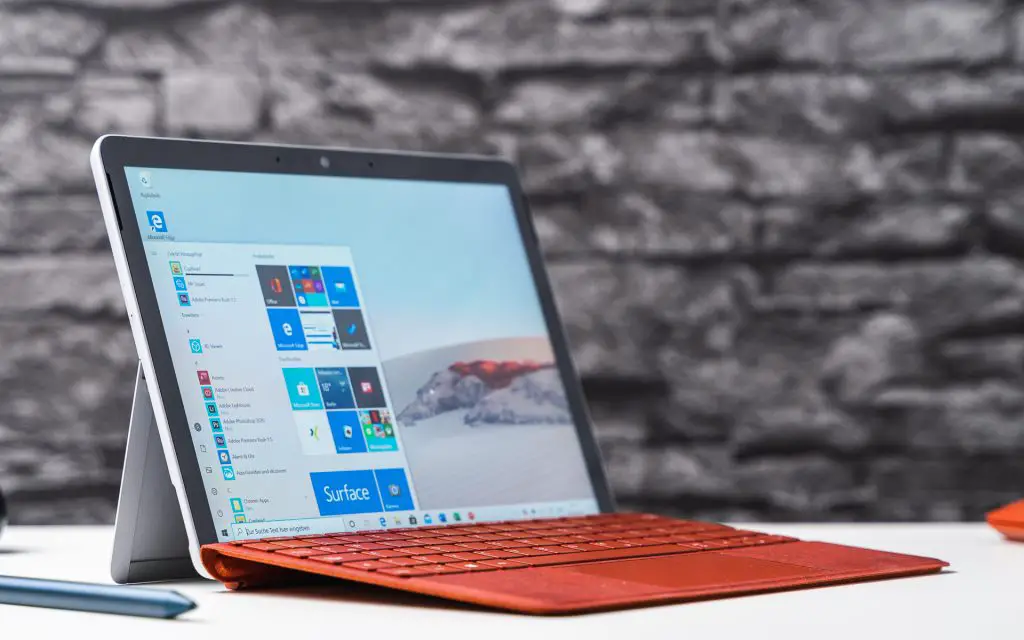
| Model | Surface Go 4 for Business |
| Dimensions | Length: 9.65 inch (245 mm) Width: 6.9 inch (175 mm) Height: 0.33 inch (8.3 mm) |
| Display | Touchscreen: 10.5-inch PixelSense™ Display Resolution: 1920 x 1280 (220 PPI) Aspect ratio: 3:2 Contrast ratio: 1500:1 Color profile: sRGB and Enhanced Individually color-calibrated display Touch: 10 point multi-touch Corning® Gorilla® Glass 3 |
| Memory | 8GB LPDDR5 RAM |
| Processor | Intel® Processor N200 |
| Weight | 1.15 lbs (521 g) |
| Storage | UFS Drive: 64GB, 128GB, 256GB |
| Graphics | Intel® UHD Graphics |
| Ports | USB-C® 3.1 (data, DisplayPort and charging) MicroSDXC card reader 3.5 mm headphone jack Surface Type Cover port Surface Connect port |
| Cameras | 1080p Full HD front-facing camera 8 MP 1080p Full HD rear-facing camera Windows Hello face authentication camera |
The Surface Go is one of the most compact Windows tablets you can buy from a major manufacturer.
It’s the closest equivalent to a netbook. Around 2010, there was a class of Windows computers that were specifically meant for very simple tasks, and they were built around Windows 7.
The Surface Go is very similar in terms of what it’s trying to achieve. You can browse the web, play simple games, create documents, play videos, etc.
But try to use Photoshop, watch 4K video or anything else, and you’ll start seeing why you should buy the Surface Pro. A good number of games aren’t playable either, and here’s a list for your reference.
The beauty of the Surface Go is how compact it is. I bring it with me almost everywhere because I can easily put it in my bag. It’s lightweight and has a decent battery life for on-the-go work.
At the time of writing, individuals can still buy the Surface Go 3 from Microsoft. Its cheapest model is $439 which makes it a very affordable Microsoft tablet. Budget an extra $100 for the official keyboard. The Surface Go 4 is currently only available from Microsoft’s Small Business website and starts at $579.
Read More: Surface Go 4 vs Surface Go 3
Surface Pro X

| Dimensions | 11.3” x 8.2” x 0.28” (287 mm x 208 mm x 7.3 mm) |
| Display | Screen: 13” PixelSense™ Display Resolution: 2880×1920 (267 PPI) Aspect ratio: 3:2 Touch: 10 point multi-touch |
| Memory | 8GB or 16GB LPDDR4x RAM |
| Processor | Microsoft SQ® 1 Microsoft SQ® 2 |
| Weight | 1.7 lb (774g) |
| Storage | Removable solid-state drive (SSD) options: 128, 256, or 512GB |
| Graphics | Microsoft SQ® 1 Adreno™ 685 GPU Microsoft SQ® 2 Adreno™ 690 GPU |
| Ports | 2 x USB-C® 1 x Surface Connect port Surface Keyboard port 1 x nano SIM Compatible with Surface Dial off-screen interaction* |
| Cameras | 5.0MP front-facing camera with 1080p full HD video 10.0MP rear-facing autofocus camera with 1080p HD and 4k video |
Microsoft is back again with an ARM-powered computer. However, this system really isn’t most ideal for everyone.
Let me ask you: have you ever used a Windows app on your Android phone (which probably has an ARM chip)?
Now there’s your problem!
The benefit of using an ARM processor over an Intel chip comes down to longer battery life due to its higher energy efficiency. Despite having a pretty big screen, it still manages to get 13 hours of battery life which is pretty amazing.
An ARM chip is a bit different from an Intel processor. So, some software might not run at all, such as Adobe’s software like Photoshop, Lightroom and other software in the Creative Cloud suite.
You might be able to run those software through an emulator that bridges the gap between the ARM chip and an intel chip.
Which leads to the question… why not just buy another Surface model with an Intel chip? Especially considering the prices are neck-and-neck.
Read: Our Microsoft Surface Pro X Review
Surface Laptop Studio

| Dimensions | Length: 12.72” Width: 9.06” Height: 0.86” |
| Display | Touchscreen: 14.4” PixelSense™ Flow Display Resolution: 2400 x 1600 (200 PPI) Refresh rate: up to 120Hz Aspect ratio: 3:2 Contrast ratio: 1500:1 Color profile: sRGB and Vivid Individually color-calibrated display VESA DisplayHDR 400 certified Dolby Vision IQ 11 support Touch: 10-point multi-touch Corning Gorilla Glass 5 display |
| Memory | 16GB, 32GB or 64GB LPDDR5x RAM |
| Processor | 13th Gen Intel Core™ i7-13700H Processor Built on the Intel Evo™ platform Intel Gen3 Movidius 3700VC VPU AI Accelerator |
| Weight | Intel Iris Xe graphics model: 4.18 lbs NVIDIA® graphics models: 4.37 lbs |
| Storage | Removable solid-state drive (Gen 4 SSD) options: 512GB, 1TB or 2TB |
| Graphics | NVIDIA GeForce RTX™ 4050 Laptop GPU with 6GB GDDR6 vRAM 2130 MHz boost clock speed, 80W maximum graphics power NVIDIA GeForce RTX™ 4060 Laptop GPU with 8GB GDDR6 vRAM 2010 MHz boost clock speed, 80W maximum graphics power NVIDIA RTX™ 2000 Ada Generation Laptop GPU with 8GB GDDR6 vRAM 2115 MHz boost clock speed, 80W maximum graphics power Intel Iris Xe Graphics |
| Ports | 2 x USB-C with USB4/ Thunderbolt™ 4 (with DisplayPort and Power Delivery) USB-A 3.1 MicroSDXC card reader 3.5 mm headphone jack Surface Connect port |
| Cameras | Full HD front-facing Studio camera 1080p Full HD camera with wide field of view Windows Studio Effects with Auto Framing, Eye Contact, and Background Blur Windows Hello 2.0 face authentication camera |
The Surface Laptop Studio is blazingly powerful which also explains why its price starts at $1,999.99 and can go over $3,000.
Not only will you have the latest 13th-generation Intel processor on all models, but you can upgrade and get the Nvidia RTX 4050, 4060 or 2000 Ada graphics chips.
You also get an Intel Movidius neural processing unit that’s meant to enhance AI processing speed.
That’s three dedicated chips in the Laptop Studio, but to be fair, the use for the Movidius AI chip is still limited.
The Surface Laptop Studio folds in a unique way. Imagine having a Surface Pro but your kickstand is mounted on a base where the keyboard is.
This gives you two points of rotation. You can adjust the screen as you would a normal laptop. This gives you the traditional “L” shape laptop. However, you can also use the kickstand to bring the screen closer to you, hence giving you a triangular shape.
Surface Laptop

| Model | Surface Laptop 5 |
| Dimensions | Surface Laptop 5 13.5”: Length: 12.1” (308 mm) Width: 8.8” (223 mm) Height: .57” (14.5 mm) Surface Laptop 5 15”: Length: 13.4” (340 mm) Width: 9.6” (244 mm) Height: .58” (14.7 mm) |
| Display | Surface Laptop 5 13.5”: Screen: 13.5” PixelSense™ Display Resolution: 2256 x 1504 (201 PPI) Aspect ratio: 3:2 Contrast ratio 1300:1 Color profile: sRGB, and Vivid Individually color-calibrated display Dolby Vision IQ™ support Touch: 10-point multi-touch Gorilla® Glass 3 display on laptop with Alcantara® palm rest Gorilla® Glass 5 display on laptop with metal palm rest Surface Laptop 5 15”: Screen: 15” PixelSense™ Display Resolution: 2496 x 1664 (201 PPI) Aspect ratio: 3:2 Contrast ratio 1300:1 Color profile: sRGB, and Vivid Individually color-calibrated display Dolby Vision IQ™ support Touch: 10-point multi-touch Gorilla® Glass 5 |
| Memory | Surface Laptop 5 13.5” 8GB, 16GB LPDDR5x RAM Removable solid-state drive (SSD) options: 256GB, 512GB Surface Laptop 5 15” 8GB, 16GB, or 32GB LPDDR5x RAM Removable solid-state drive (SSD) options: 256GB, 512GB, or 1TB |
| Processor | Surface Laptop 5 13.5”: 12th Gen Intel® Core™ i5-1235U processor 12th Gen Intel® Core™ i7-1255U processor Built on the Intel® Evo™ platform Surface Laptop 5 15”: 12th Gen Intel® Core™ i7-1255U processor Built on the Intel® Evo™ platform |
| Weight | 2.86lbs (1.297kg) for 13.5″; 3.44lbs (1.545kg) for 15″. |
| Storage | Removable solid-state drive (SSD) options: 256GB, 512GB or 1TB (on the 15″ only) |
| Graphics | Intel® Iris® Xe Graphics |
| Ports | 1 x USB-C® with USB 4.0/Thunderbolt™ 4 1 x USB-A 3.1 3.5mm headphone jack 1 x Surface Connect port |
| Cameras | Windows Hello Face Authentication camera 720p HD front facing camera |
If you want a plain old laptop, then the Surface Laptop might fit the bill.
The Surface Laptop is great because has great specs and a nice 13.5″ or 15″ screen, making it a good desktop replacement. It has a great design and is highly portable, weighing in at 2.86 lbs (1.297 kg) for the lightest model. Plus, battery life is quoted at 17-18 hours, which is pretty incredible, even if in real-world usage, you only get half to three-quarters of that.
However, when you buy a Surface Laptop, you might be thinking, “Why don’t I look at other manufacturers?”
If you look at specs only, you might be able to get a better deal elsewhere, while Microsoft’s products are great, they command a premium. The Surface Laptop has huge competition because it’s basically just a laptop. There are a bunch of manufacturers out there who make a very similar product, such as Dell’s XPS range with a focus on portability.
| Feature | Cheapest Dell XPS 13 | Cheapest Microsoft Surface Laptop |
| Price | $599 on discount, $799 regular | $799 on discount, $999 regular |
| Processor | 12th Gen Intel Core i5-1230U | 12th Gen Intel® Core™ i5 |
| RAM | 8GB | 8GB |
| Storage | 256GB SSD | 256GB SSD |
| Display | 13.4″ | 13.5″ |
| Dimensions | Height : 0.55 in. (13.99 mm) Width: 11.63 in. (295.4 mm) Depth: 7.86 in. (199.4 mm) | Height: 0.86” Width: 12.72” Depth: 9.06” |
| Min. weight | 2.59lb (1.17kg) | 2.86lbs (1.297kg) |
The starting price for the 15″ is $1,099, but you do not get a dedicated graphics card. If you want to play new games and render videos, then you might consider spending that money on a gaming PC instead. At $1,000, you can get an entry-level Nvidia or AMD Radeon graphics card. Of course, with gaming PCs, portability and battery life aren’t the biggest priorities.
Read: Our Beginners Guide To Using A Windows Tablet
Microsoft Surface Laptop Go

| Model | Surface Laptop Go 3 |
| Dimensions | Length: 10.95” Width: 8.12” Height: 0.62” |
| Display | Touchscreen: 12.4” PixelSense™ Display Resolution: 1536 x 1024 (148 PPI) Aspect ratio: 3:2 Contrast ratio: 1000:1 Color profile: sRGB and Enhanced Individually color-calibrated display Touch: 10-point multi-touch CorningFootnote® GorillaFootnote® Glass 3 |
| Memory | 8GB or 16GB LPDDR5 RAM |
| Processor | 12th Gen Intel Core i5-1235U Processor |
| Weight | 2.49 lbs |
| Storage | Removable solid-state drive (SSD) options: 256GB |
| Graphics | Intel® Iris® Xe Graphics |
| Ports | USB-C 3.2 (data, DisplayPort and charging) USB-A 3.1 3.5 mm headphone jack Surface Connect port |
| Cameras | 720p HD front-facing camera |
It’s an ultraportable laptop, weighing in at 2.49 lbs (1.1 kg) and with a small 12.4-inch screen.
The Surface Laptop Go 3 has a few important upgrades compared to its predecessor, such as getting rid of the 4GB RAM configuration. That really sucks in today’s use — I know first-hand because I am typing this on a 4GB Surface. It also has a useful fingerprint sensor, which I’d rather have over facial recognition logins (it’s slow and finicky).
My thoughts here aren’t too far off from what I wrote about the Surface Laptop. It faces steep competition from other brands. In fact, the first thing I wondered is… what do I get if I bought a Surface Go tablet instead?
Let’s take a look.
| Feature | Surface Go 3 (top-tier) | Surface Laptop Go 3 (base model) |
| Price | $629 on discount, $729 regular (prices quoted with $100 keyboard add-on) | $699 discounted, $799 regular |
| Processor | Intel Core i3 | Intel Core i5 |
| RAM | 8GB | 8GB |
| Storage | 128GB SSD | 256GB SSD |
| Display | 10.5″ at 1920×1280 pixels | 13.5″ with 1536 x 1024 pixels |
| Dimensions | 9.65” x 6.9” x 0.33” (245 mm x 175 mm x 8.3 mm) keyboard excluded | Length: 10.95” Width: 8.12” Height: 0.62” |
| Weight | 1.2lb (544g) keyboard excluded | 2.49 lbs (1.1kg) |
I conclude that you get much less bang for buck in terms of specifications with the Surface Go 3. A weaker processor and less storage come to mind immediately. And $100 for the official keyboard makes me scream — that’s about a quarter of the value of the base-model Surface Go 3.
However, the Surface Go 3 wins in terms of its portability, being lighter and smaller. Plus, you can use it as a tablet by detaching the keyboard. It also has a higher resolution screen than the Surface Laptop Go 3.
What is the Surface Pen and Should You Buy It?
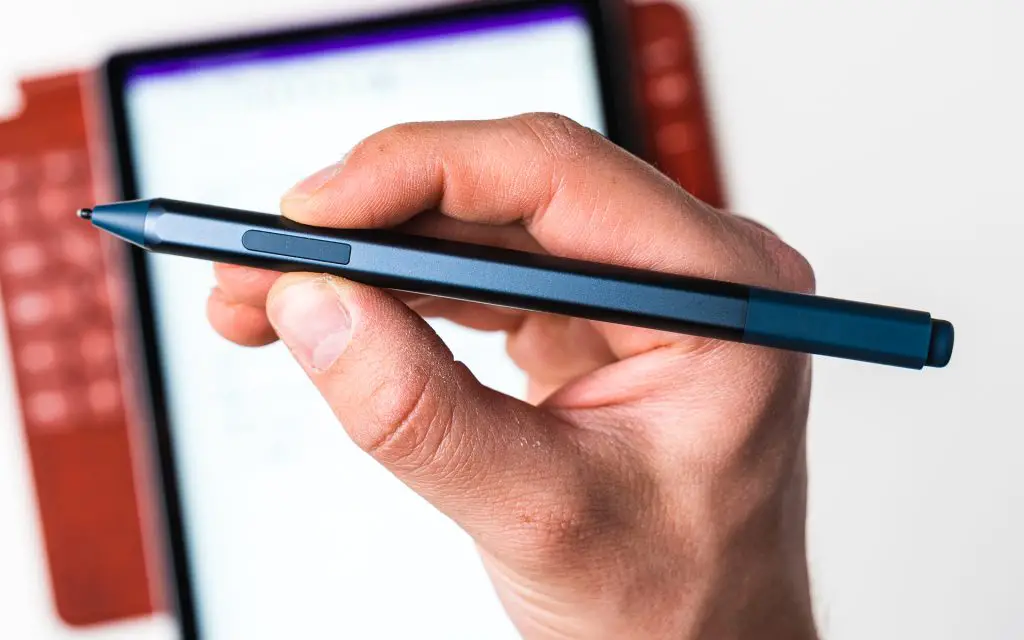
When you buy a Surface Pro or Go tablet, you will be asked if you want to buy the keyboard. You should be able to judge whether you need a keyboard, so I’ll leave that to you.
However, another accessory that you might be considering is the Surface Pen. The Surface Pen really comes to life when you have apps that accompany and enhance the experience of using a pen.
Some features that are immediately obvious are painting, drawing or Photoshop editing, when you need to be able to use pen pressure to adjust the stroke and opacity of your drawing tool. I enjoyed using the Surface Pen on the Surface’s display because I could see exactly where I was drawing on. It’s much more intuitive than using an off-screen graphics tablet, which I use on my main computer. That took a bit of training.
Notetaking apps are also particularly helpful because they allow you to have an endless supply of paper on your Surface. No more piles of notebooks! I found it useful when learning to write a new alphabet or Chinese/Japanese characters. Practicing penmanship takes a lot of paper.
Unfortunately, I believe the downside involves how weird it is to write on glass. Take a pencil and write on your window, because that’s how it feels. To be fair, the Surface Slim Pen 2 has haptic feedback which can help mimic the feeling of writing on paper — as long as your app and Surface support it.
ARM vs Intel Processors
Microsoft’s moves into integrating ARM processors again might spur your curiosity on why Microsoft would create a product that seems so niche.
Microsoft has a whole page explaining the pros and cons. Here are the main points, summarized.
- Always be connected to the internet with a cellular signal
- Better battery life because of better power efficiency (in other words, no plugging in during a typical work or school day)
- Turn on instantly
And here’s why you shouldn’t get an ARM-based Surface.
- Drivers for hardware, games and apps will only work if designed for a Windows 11 ARM-based device.
- Driver incompatibility means some devices, games and apps might not work.
- Apps that might not work include Windows Fax and Scan, apps that customize Windows such as assistive tech, cloud storage apps, and antivirus software.
-
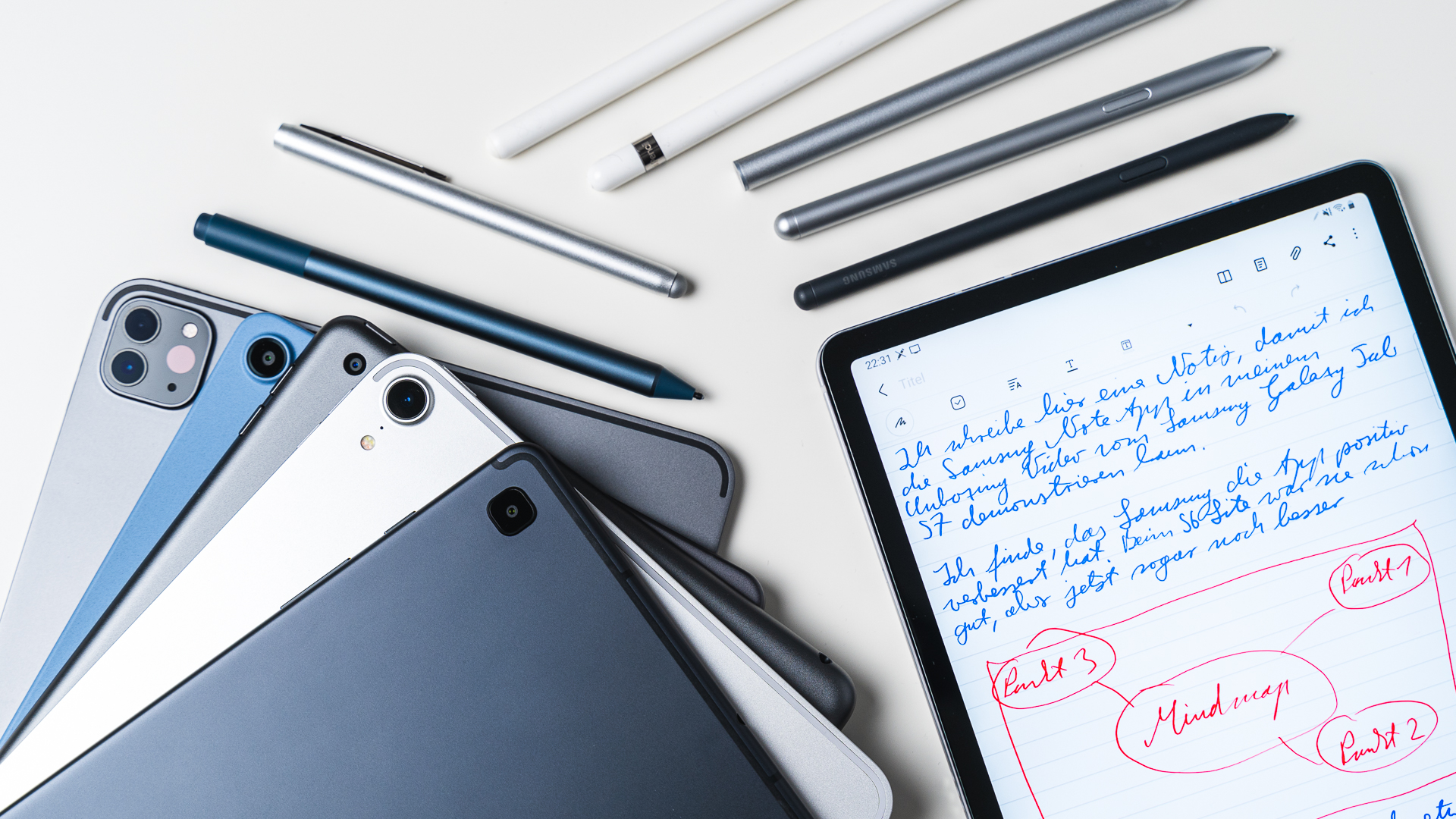
 The Best6 months ago
The Best6 months ago9 Best Tablets With Stylus Pen For Drawing & Writing | 2024 Edition
-
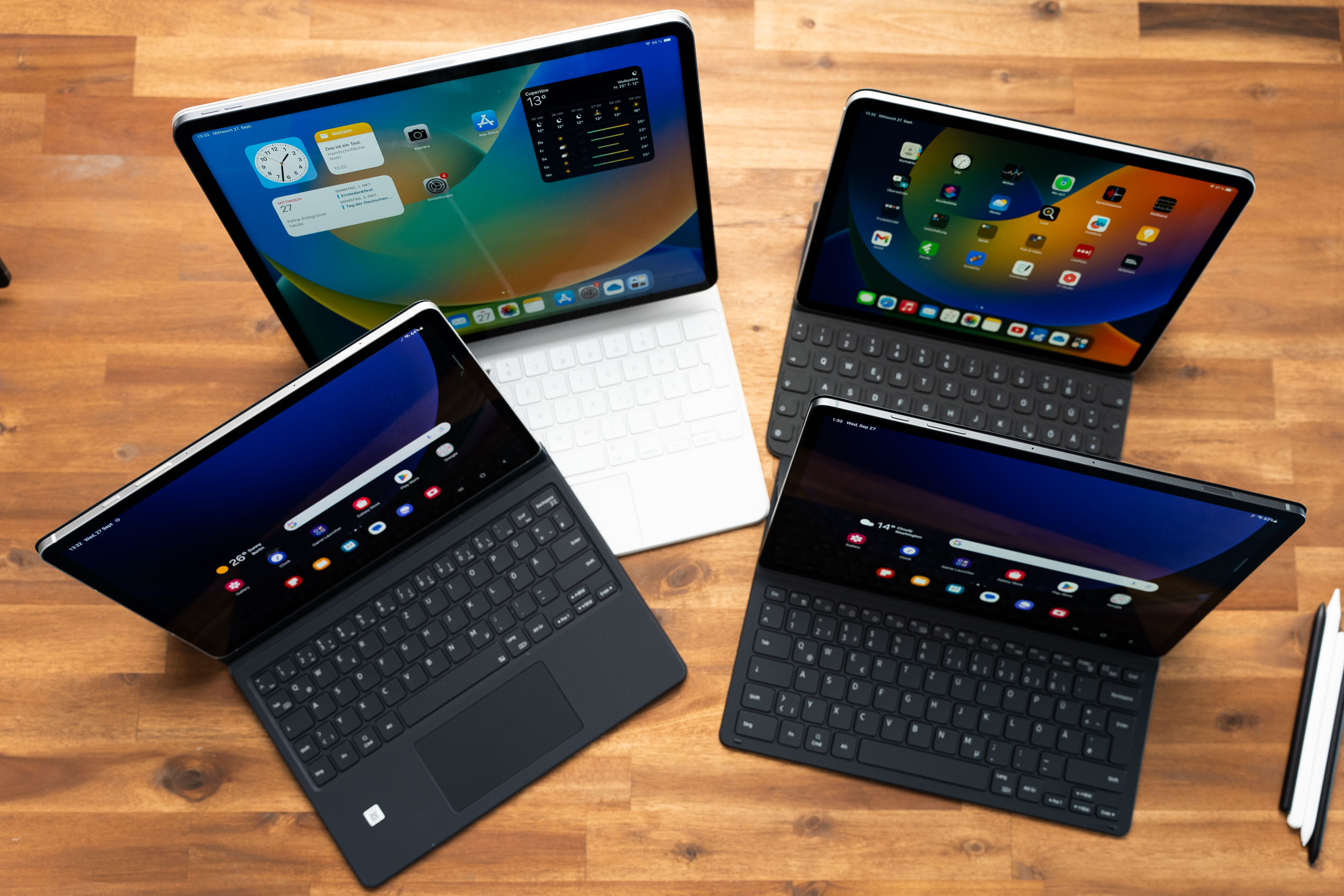
 The Best5 months ago
The Best5 months agoTop 10 Best Tablets with a Keyboard | 2024 Edition
-
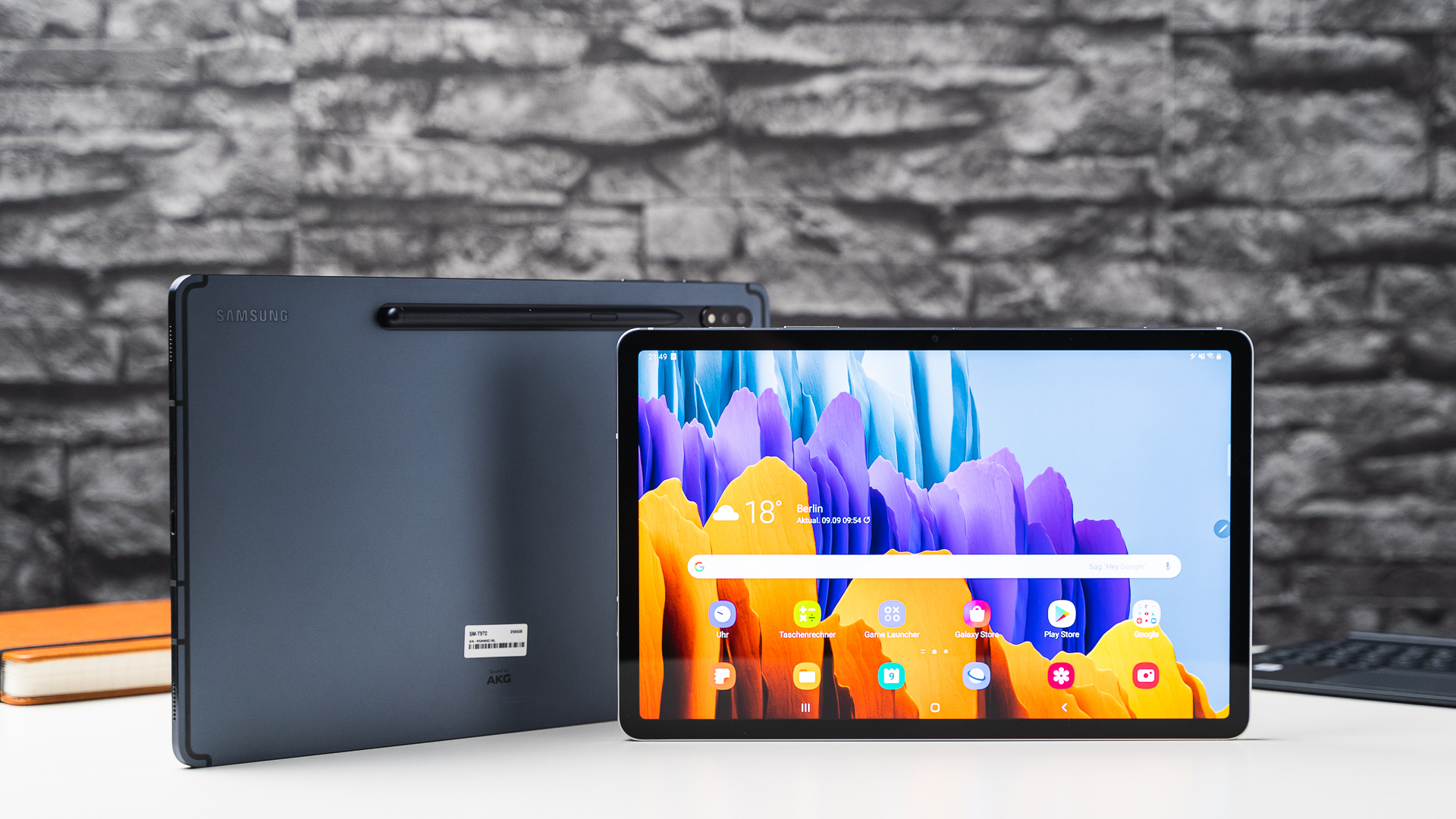
 The Best4 months ago
The Best4 months agoTop 15 Best Android Tablets Based On Real Reviews | 2024 Edition
-
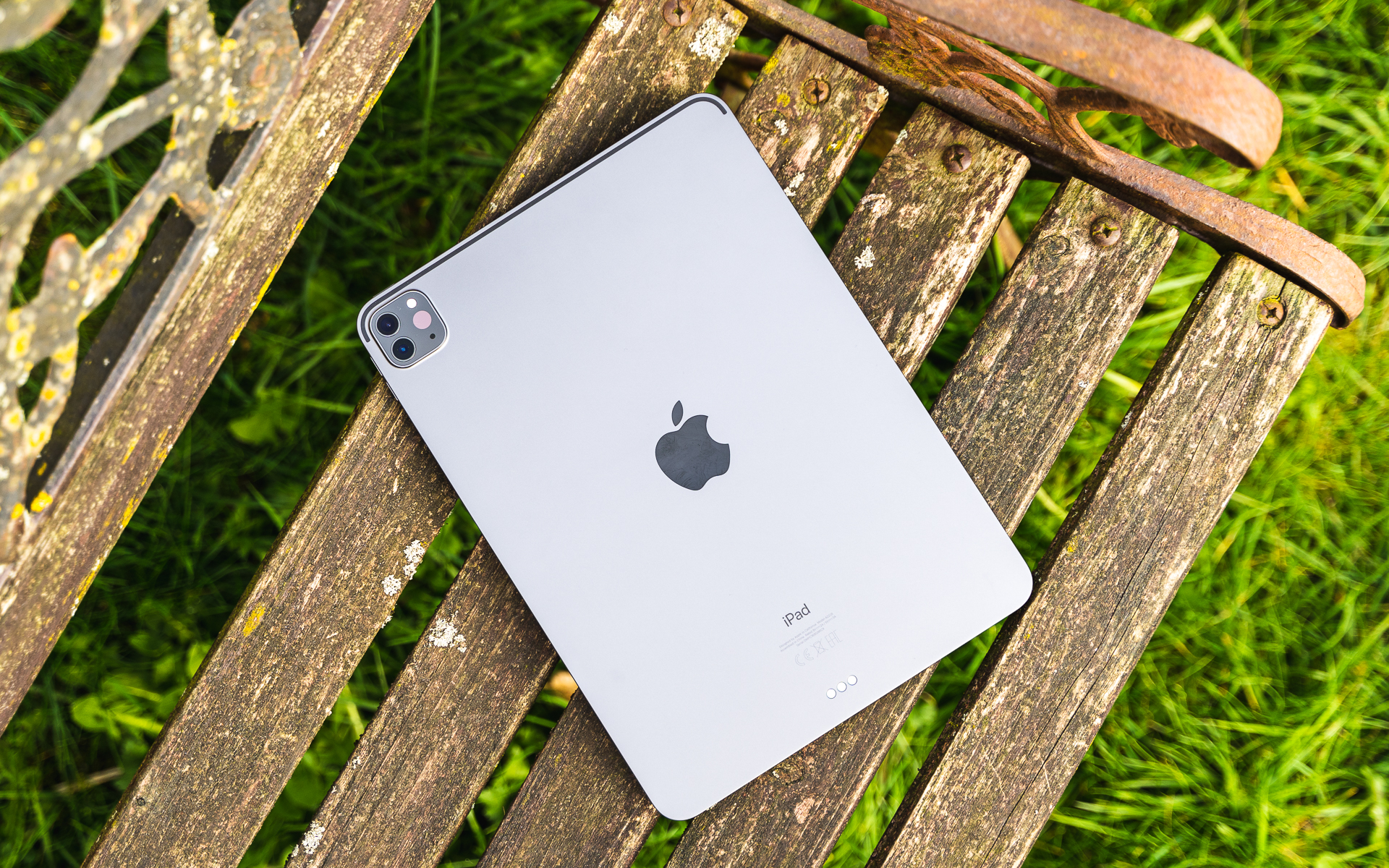
 The Best4 months ago
The Best4 months ago11 Best Tablets With 5G, 4G LTE & SIM Card Slot in 2024
-
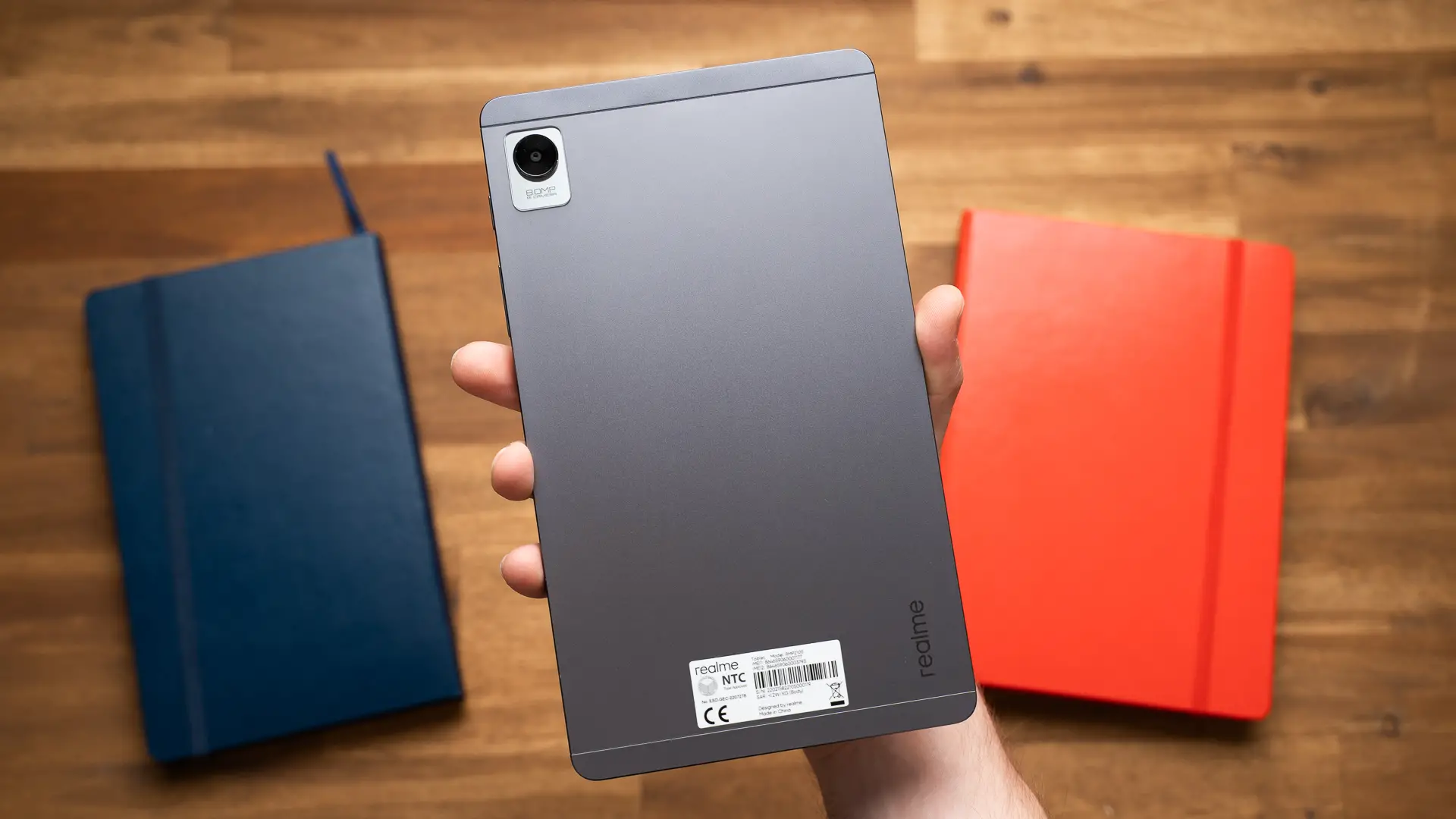
 The Best4 months ago
The Best4 months ago6 Best 8-Inch Mini Tablets Review & Comparison | 2024 Edition
-
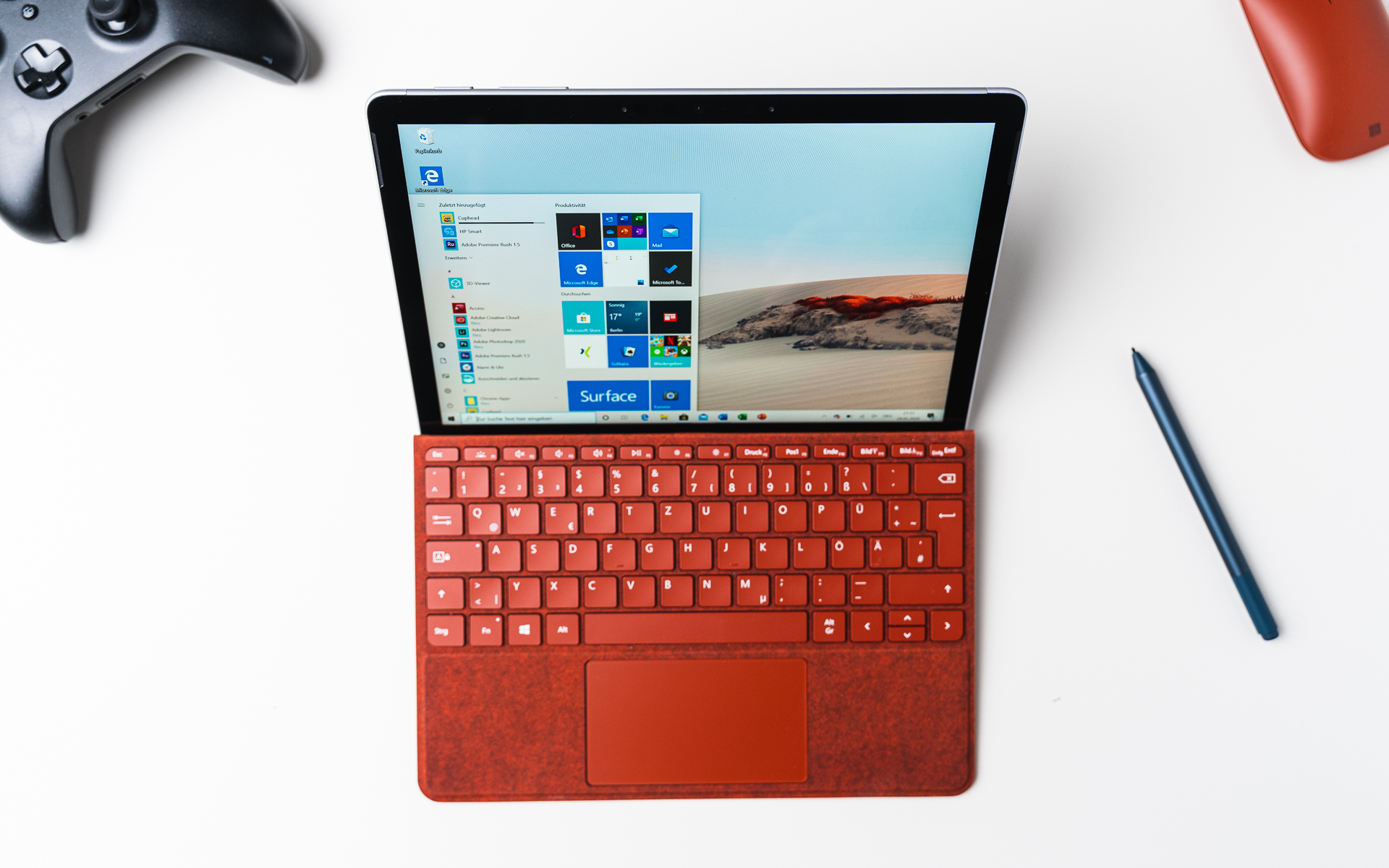
 The Best5 months ago
The Best5 months agoTop 3 Best Windows Tablets You Can Buy Today | 2024 Edition
-
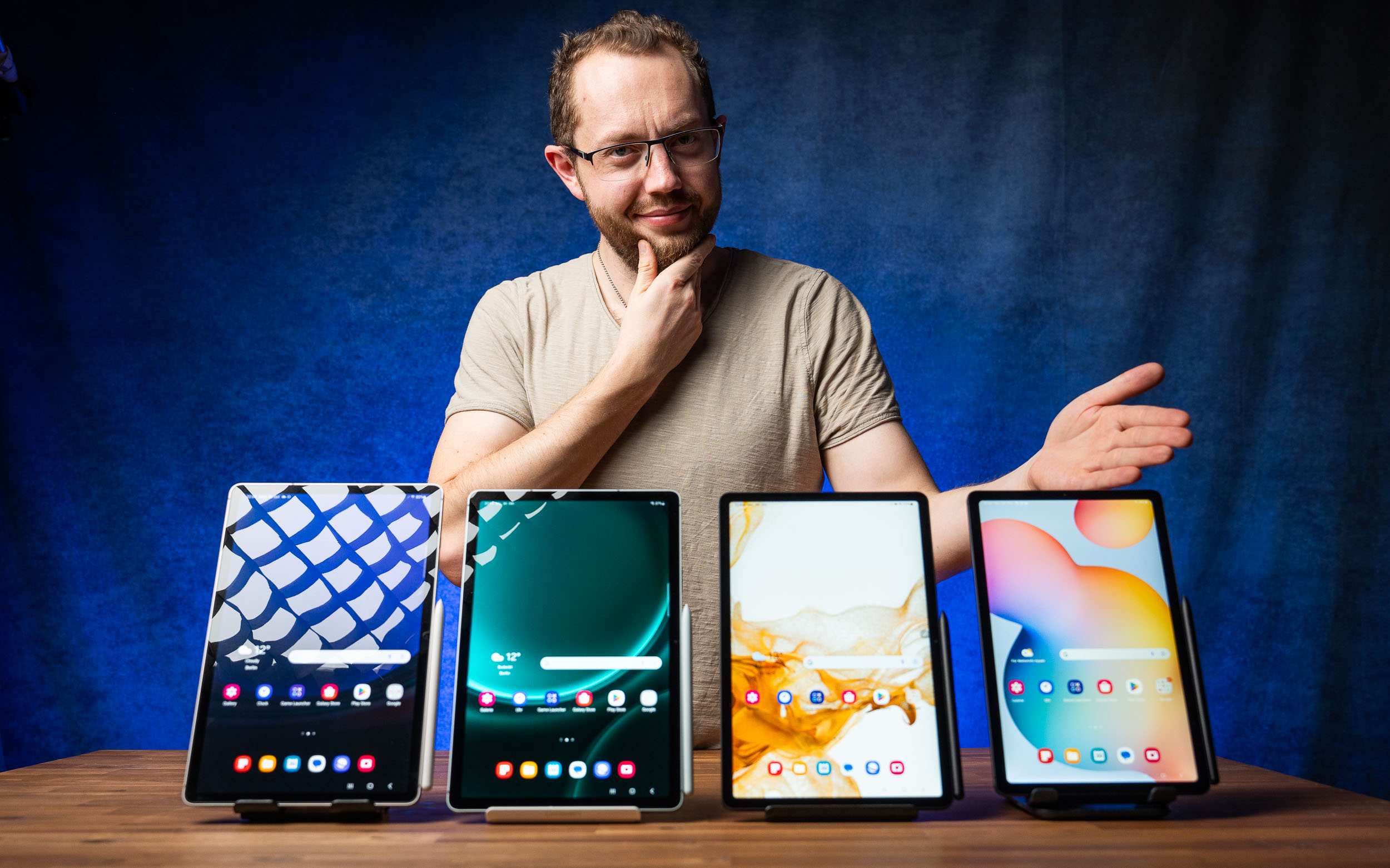
 The Best6 months ago
The Best6 months agoThe 8 Best Samsung Tablets: Our Big 2024 Comparison
-
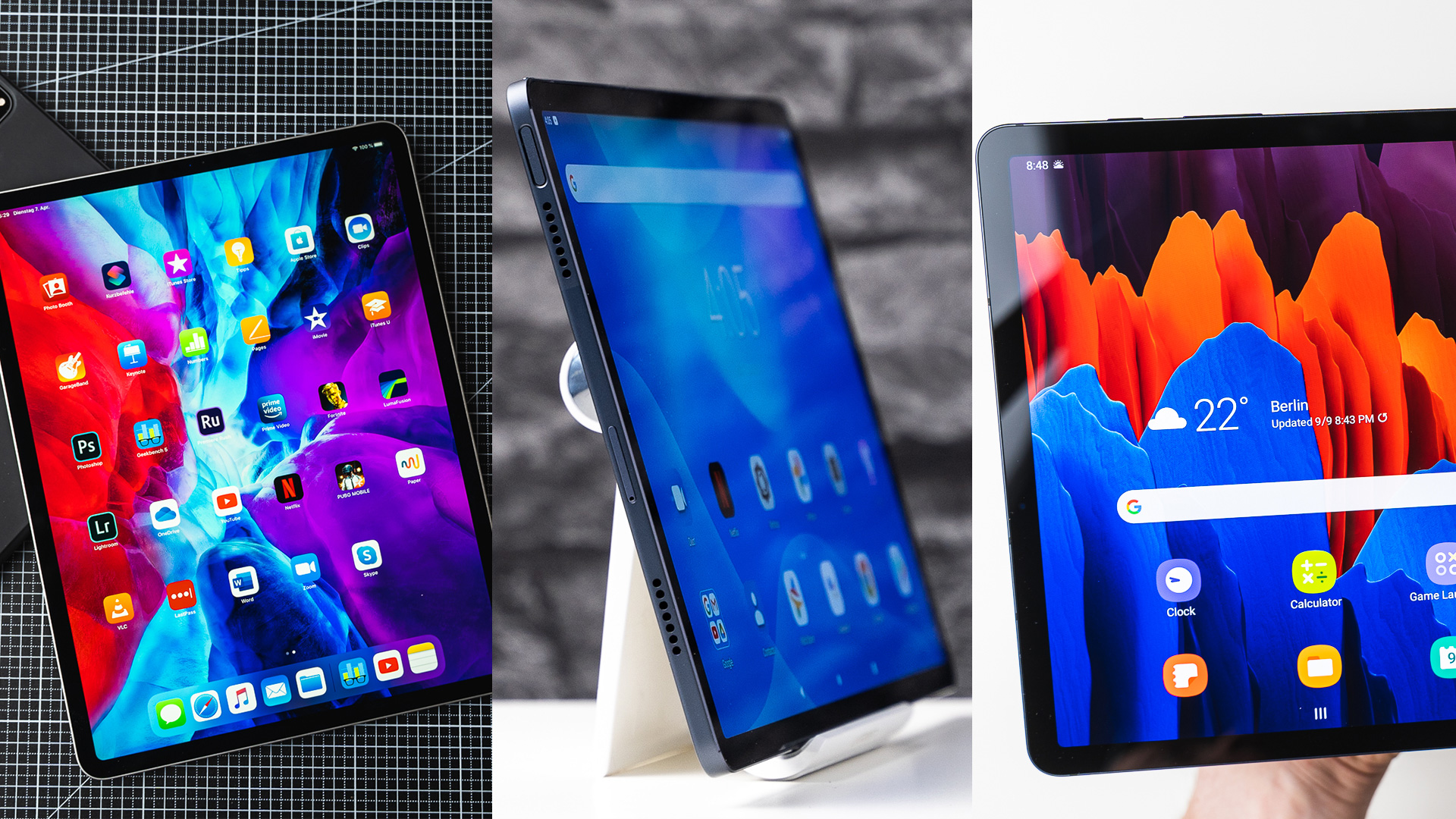
 The Best6 months ago
The Best6 months agoTop 7 Best Large Screen Tablets Tested | 2024 Edition

